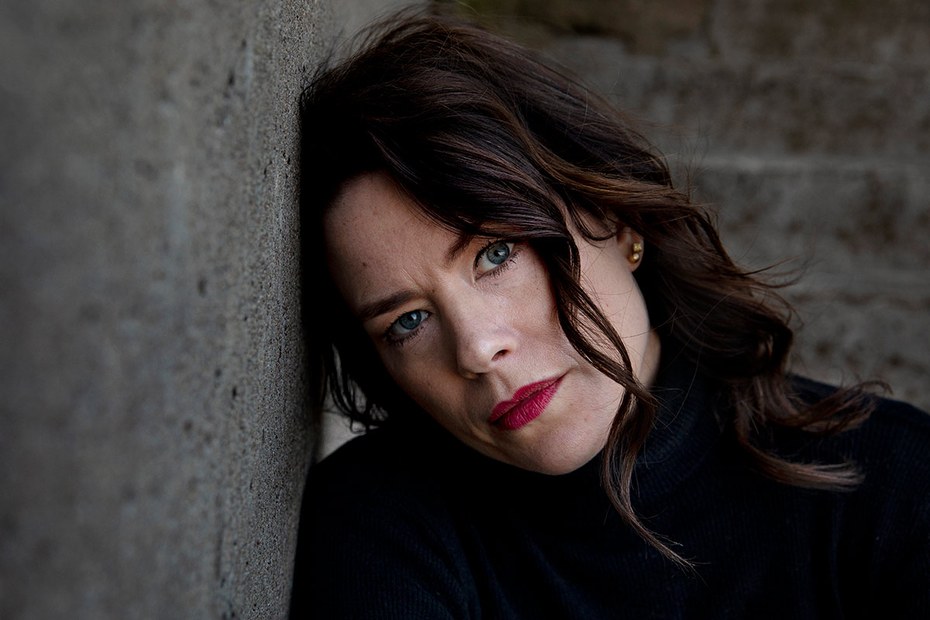Mirror, mirror on the wall, who is the most beautiful in the whole country? ”Which child does not know the question of the evil queen in“ Snow White ”? The fairy tale is intended to teach children where vanity can lead. But you could also read it differently: With it, children are trained from an early age to understand beauty as dear and dear. This way of thinking is criticized by Liv Strömquist, comic book artist and podcaster, who has made a name for herself as a feminist in recent years. Margarete Stokowski is one of the self-confessed Strömquist fans that Missy Magazine enthuses enthusiastically that Strömquist let the patriarchy go up “radically, confrontationally and unrestrainedly funny”.
So far she has presented four comics: a cultural history of the vulva, two comics about love in capitalist times – and an album in which she tears apart the myth of the male genius. In her latest comic In the hall of mirrors she turns to beauty and has dedicated a chapter of her own to Snow White’s stepmother.
Mania for beauty and the cult of the body, “fuckability” and nasty looks – these are the themes around which the Swede’s five new comic essays revolve. It is a crazy mix of facts and theses, anecdotes and stories, pop culture and philosophy with which Liv Strömquist approaches her topic. In it, we encounter celebrities like the Kardashians, read about the burden of being beautiful using the examples of Nefertiti and Empress Sisi, follow the theories of Susan Sontag and Eva Illouz and learn from retired queens why ideal women of beauty ruin old age.
Fucked up, but that’s the way it is
During the book fair, I meet Strömquist – not in Frankfurt am Main, but in accordance with the pandemic via video conference. She made herself comfortable in her studio in Malmö in her blue, feel-good sweater, her eyes look tired. Your German publisher organized a dozen interviews. We talk about Instagram and “guilty pleasures”, because nowhere else does the hype about the most beautiful in the country go off like this. For example, why are millions of people following the Kardashians there? “We dream ourselves into another world and then imagine what it would be like to be as beautiful as Kylie Jenner,” answers Strömquist. This observation corresponds exactly to what the French philosopher René Girard claims in his mimetic theory: “People desire what other people desire.” The Kardashians have made a business out of it, they earn millions with their beauty lines. The British business magazine Forbes recently named Kylie Jenner the youngest self-made billionaire of all time.
Kim, Kylie and Khloé have massively changed the idea of what is considered sexy. Their bodies are “decisive for the ideal of beauty these days,” says Strömquist. Even if it was still popular a few years ago to be tall and skinny, it is now considered beautiful to have a large butt and a narrow waist.
In the digital society, the question of who is the most beautiful in the country is not put to the mirror, but to the whole world with the iPhone in hand. The body norm of “Insta” is the mirror that millions stand in front of every day. On the one hand, women would benefit, says Strömquist, because beauty offers opportunities for advancement and gives them more opportunities to change their appearance. On the other hand, it also increases the pressure to make something of yourself: “Women attach great importance to appearance and want to constantly prove to themselves and others how beautiful they are. This fixation on appearance seems to me to be an exclusively female hobby. ”With statements like this, one can already hear the grumbling in feminist circles. Especially since they come from someone who knows how to stage herself: Strömquist is always the cover girl for her comics, as an intellectual punk, seductive Madonna or cool style icon – always with a wink, of course. The fact that feminists who are not ugly are in a better position “is absolutely fucked up, but it just corresponds to reality,” she comments laconically. At the age of 17, the daughter of a librarian and an artist attended a lecture on gender relations in Stockholm. Since then she has been interested in feminism. She read a lot, listened to punk, and looked for a position of her own. In her 20s she attended two workshops: one was about male violence and oppression, the other about pop culture, participation and love for life. Since then she has known that her feminism should be funny, ironic and cheerful. During her political studies she drew her first do-it-yourself comics and took part in the university radio. The breakthrough came in mid-30s: In The origin of the world (2014) she tells a cultural history of the vulva and menstruation. A drawing in the comic shows a figure skater bleeding in the crotch. It was shown in the Stockholm subway in 2017 as part of an art event. The right-wing populist Sweden Democrats made a scandal out of it, so that Strömquist’s “public menstrual art” even in the liberal one Guardian was discussed.
For Strömquist, the campaign was a contribution to bringing menstruation out of taboo and into normality. Quite a few feminists were irritated by their last comic: I don’t feel (2020) is a plea for romantic love and thus an alternative to their critical analysis of role patterns and love traps in The origin of love. No problem for Strömquist: she loves contradictions.
Sexy grandmothers
The capitalist performance society has also deregulated the love market, one learns in its new work. Ideals of beauty, body norms and sex appeal have become more important. “They have turned into a kind of status that expresses a person’s worth,” explains Strömquist, referring to a study. According to this, the majority of the men surveyed have no problem having sex with an overweight woman, but do not want to be seen with her in public: because that damages their reputation. “A man can definitely find an overweight woman beautiful or attractive, but as a status symbol she is less valuable than a slim woman,” says Strömquist. “That is the brutal truth behind the ideals of beauty that we encounter everywhere.” But men are also affected by this. On Tinder, women would turn down four out of five men because they’re not handsome, tall, and muscular enough. The experience of being rejected because of the appearance is currently more likely to be made by men. How many rejected guys turn into misogynistic incels, nobody knows exactly.
In her multi-layered analysis, Strömquist shows that the cult of the body does not stop at age limits. Wherever you look, there is a longing for eternal youth. “There was a time when mothers and grandmothers didn’t have to be sexy to be accepted as women,” says Strömquist. That is different today. in the Hall of Mirrors she lets a couple of aging queens talk about it: the first complains of declining self-confidence, the second is happy to escape the evaluative glances, the third is grateful that age hardly plays a role in the lesbian community. The latter is one of the few moments when queer perspectives appear in comics. This is where criticism could start if the Swede had not repeatedly used queer-feminist theories in previous works and questioned the binary gender order. “Beauty is something bigger than what a photo can show,” she says. Keeping an eye out for it seems more worthwhile than binge-watching for hours on Tiktok and Insta.
In the hall of mirrors Liv Strömquist Before 2021, 168 S., 20 €
–
– .


